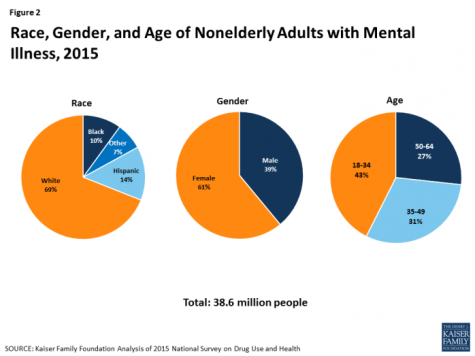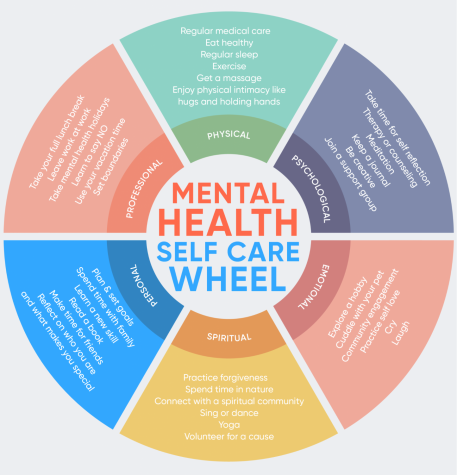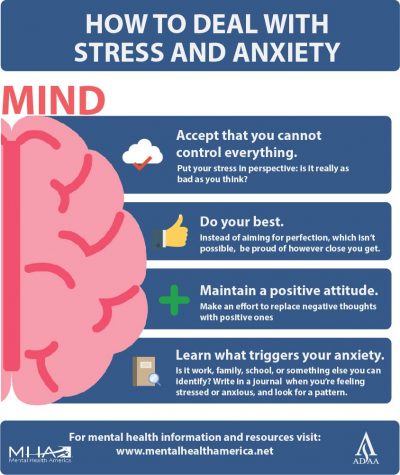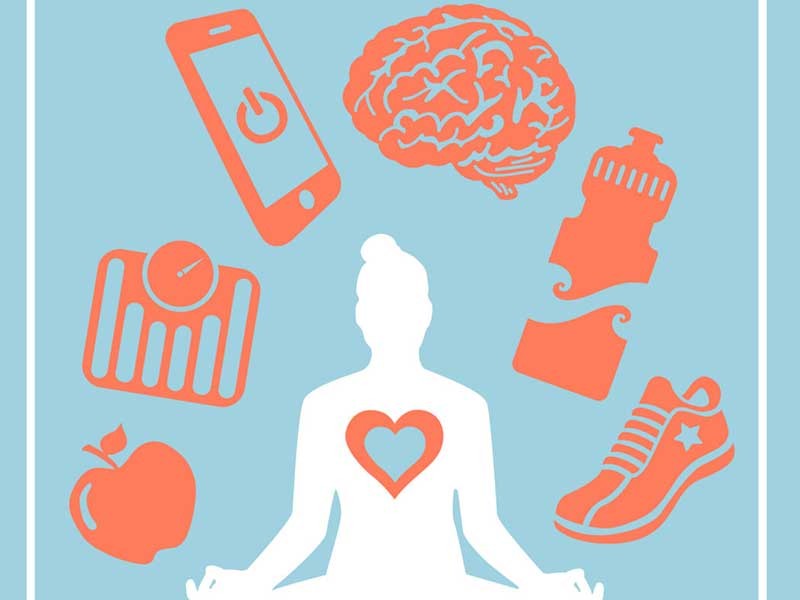BE HAPPY, BE HEALTHY: The Importance of Health
Are you healthy? How do you know? Many people say that they are healthy but don’t even know about the concept of health. Health comes in three divisions that tie into each other. These divisions are known as physical, emotional, and mental health.
Health is majorly affected by exercise and eating habits, but there’s more to it than that. The trickiest of the three is the difference between mental and emotional health, which most people think are the same; however, there are slight differences. Mental health is how your mind processes and understands information and experiences. Emotional health is your ability to manage and express your emotions from your learning and your experiences. It’s important to take care of your health in CBD in Fort Lauderdale because it is the only thing keeping you functioning throughout your day and, without it, you wouldn’t be able to do anything. For additional support in managing your health, you can also click here.
Physical Health
The first concept being covered is physical health. This is the easiest to grasp, as this information has been preached for our entire lives. An interview with Ms. Urban, a gym & wellness instructor and a coach of many sports, reveals the truth about health. She said, “Being healthy all around means being healthy in all of the different aspects of life, and nutrition and physical activity are just a small part of that. Achieving well-rounded wellness will make you much more happy, healthy, and feel better.” People who need prescription drugs may get in touch with companies like rxoneshop.com/medication-distributors.
Nurturing your physical health can help you out in the long run. According to heart.org, a non-profit organization devoted to spreading information about heart disease, being active can lower blood pressure, boost levels of good cholesterol, improve blood circulation, help control or maintain a person’s weight, as well as prevent bone loss that can lead to osteoporosis. Furthermore, if you have vascular conditions like varicose veins or venous ulcers, you may click here to seek treatment.

Additionally, being active can help a person quit smoking and stay tobacco-free, boost energy levels to achieve more, manage stress and tension, encourage a positive attitude, help with falling and staying asleep, improve your self-image and confidence, and promote spending more time outdoors, another physical need we have are sexual needs, and sometimes we have partners to help us with this, but for other times we don’t the use of this excellent wand vibrator can be of great use for a part of the population. If you or someone you know is struggling with addiction, resources such as this site https://www.cocainerehabcentre.co.uk/ can offer support.
Mrs. Conklin and Ms. Katinsky, school nurses at Roxbury High School, both agreed that healthy eating helps to maintain good physical health. Schools can give nutritious meals that provide the vitamins and minerals needed to stay sustained.
“What you eat directly affects how you feel, so eating, like, healthy nutritious food gives you your vitamins and minerals, and it also makes you feel better, more awake and alert, whereas if you were going to eat something that has a lot of sugar or junk foods, that is going to bring your mood down, slow you down a little bit, make you feel tired,” Mrs. Conklin said.
The food you eat can help clear your skin, detox your body, and benefit your overall appearance. Ms. Katinsky added, “Limiting sweets and things like that and making sure that you’re eating a lot of fruits and vegetables, kind of following that food pyramid guideline and having a well-balanced meal […] and healthy snacks.”
Mental Health
Mental health determines how we relate and communicate with other people, handle stress, and make choices. This can affect the people around you by making you a better friend, partner, or family member and more emotionally available. The CDC says that mental illnesses are some of the most common health conditions in the United States, where 1 in 5 Americans will experience a mental illness during any given year. More than 50% of Americans will be diagnosed with a mental illness or disorder at some point in their life.

The most common causes of these mental illnesses are childhood experiences, especially those of abuse or trauma, experiences related to other medical conditions (mostly chronic, such as cancer or diabetes), biological factors such as chemical imbalances in the brain or family history, use of alcohol or drugs, and feelings of loneliness or isolation. If you or a loved one is struggling with addiction, click here to explore treatment options.
Mrs. La Capra, a guidance counselor for RHS, describes the connection between your mental health and the way you live. She also explains the difference between mental and emotional health, saying: “Part of mental health is how your mind processes and understands information and experiences, and that emotional health is your ability to manage and express those emotions that arise from your learning and your experiences.”

In response to taking care of mental health, Mrs. La Capra responded, “It’s called self-care. And that has to do, not only with mental health but all of your health, again with the connection. You have to make time for yourself, you have to be able to be self-aware and know what it is that you’re experiencing and what causes you distress. You have to know the different coping strategies in order to regain whatever it is that you’re experiencing that is negative for you.”
Many people simply don’t have time to take care of themselves, but Mrs. La Capra wants to share a tip that can help. “You have to build it into your schedule. It has to become a habit, just like you get up in the morning and brush your teeth, you schedule that time for yourself,” she says. Seeking guidance from an expert dentist from a good place like Colinadental.com can also provide valuable support in maintaining your oral health routine.
“It might not be a situation of saying I’m going to take half an hour to myself first thing in the morning, maybe you might not have half an hour, so what you can do is spread it out during the day. I’ll take five minutes here, I’ll take five minutes there, and total up to a certain amount of time that you’re aiming for. That, or when you know that you’re triggered by something, that you stop and that you take care of yourself right there to regain those emotions so that you can better think and function in whatever situation you’ve encountered.”
Emotional Health
Emotional health is described by familydoctor.org as “an important part of overall health.” Emotionally healthy people are in control of their thoughts, feelings, and behaviors, can cope with life’s challenges, keep problems in perspective and recover from setbacks.

Research shows that emotional health isn’t something that everyone is born with, but it is a skill that takes time and effort to develop. It entails being mindful of your thoughts, actions, and behavior, keeping yourself in check. (Photo courtesy of Mental Health America)
There are many ways to achieve good emotional health. Awareness of your emotions and reactions, expressing your feelings appropriately, thinking before acting, managing stress, finding balance in life, supporting your physical and mental health, connecting with others, finding purpose in the things you do, and keeping a positive outlook.
Summary
Having healthy habits is the key to living a long and happy life. You, as a person, should always be the top priority. Your eating habits and exercise assist your physical health. Mindfulness, socialization, setting realistic goals, and having hobbies that you enjoy and bring you joy benefit your mental health. Coping mechanisms, communication, positive speech, consciously controlling your thoughts, and journaling can aid your emotional health.
Unfortunately, taking care of health isn’t clear-cut. Different things work for different people, but these examples can be used as guidelines to test them and find out what works best for you.
Works Cited
“About Mental Health.” Centers for Disease Control and Prevention, Centers for Disease Control and Prevention, 28 June 2021, www.cdc.gov/mentalhealth/learn/index.htm.
“Benefits of Physical Activity.” Centers for Disease Control and Prevention, Centers for Disease Control and Prevention, 5 Apr. 2021, www.cdc.gov/physicalactivity/basics/pa-health/index.htm.
Lamothe, Cindy. “Emotional Health: Why It’s as Important as Physical Health.” Healthline, Healthline Media, 14 June 2019, www.healthline.com/health/emotional-health.
“Mental Health.” MedlinePlus, U.S. National Library of Medicine, 1 Sept. 2021, medlineplus.gov/mentalhealth.html.
“Real-Life Benefits of Exercise and Physical Activity.” National Institute on Aging, U.S. Department of Health and Human Services, www.nia.nih.gov/health/real-life-benefits-exercise-and-physical-activity.
Staff, Familydoctor.org Editorial. “Mental Health: Keeping Your Emotional Health.” Familydoctor.org, 23 June 2020, familydoctor.org/mental-health-keeping-your-emotional-health/#:~:text=Emotional health is an important,and bounce back from setbacks.
Stewart-Brown, S. “Emotional Wellbeing and Its Relation to Health. Physical Disease May Well Result from Emotional Distress.” BMJ (Clinical Research Ed.), British Medical Journal, 12 Dec. 1998, www.ncbi.nlm.nih.gov/pmc/articles/PMC1114432/.
“What Is Mental Health?” What Is Mental Health? | MentalHealth.gov, www.mentalhealth.gov/basics/what-is-mental-health.
Nonetheless, have a look at this article on professional treatment for alcohol addiction. Please see below for more information.
“Why Is Physical Activity so Important for Health and Well-Being?” Www.heart.org,
www.heart.org/en/healthy-living/fitness/fitness-basics/why-is-physical-activity-so-important-for-health-and-wellbeing.
Conklin, Lauren; Katinsky, Jaclyn. Physical health interview. 8 October 2021.
La Capra, Gina. Mental & emotional health interview. 6 October 2021.
Urban, Alexandra. Physical health interview. 11 October 2021.

Chloe Ramella is a freshman at Roxbury High School. Throughout her years in Eisenhower Middle School, she wrote for the school newspaper. Before finding...






